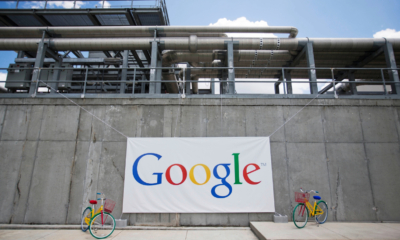PPC
The Pros and Cons of Combining Content Marketing With PPC and How to Pull It Off

It’s no secret that content marketing and PPC are two of the most important and popular types of digital marketing strategies. But what happens when you combine the two? Is it a match made in heaven, or does it end in disaster? In this post, we’ll take a look at the pros and cons of combining content marketing with PPC, and we’ll also offer some tips on how to make it work.
What Does It Mean to Combine Content Marketing With PPC?
As we all know, content marketing is all about creating and distributing valuable, relevant, engaging content to attract and retain a clearly defined audience to drive profitable customer action. Content marketers focus on crafting well-written, compelling, SEO-friendly copy that answers users’ questions and helps boost organic traffic and website authority within a certain niche.
On the other hand, PPC is a paid form of advertising that allows you to place ads on search engines and other websites to drive traffic to your website.
This is nothing new. But what exactly does it mean to combine the two? It means using PPC campaigns to promote highly-valuable and highly-converting content on your website. In other words, you’re using SEO-friendly content to attract organic traffic while also using targeted PPC ads to drive traffic to that same content.
Why Would You Want to Combine PPC and Content Marketing?
There are several reasons why you might want to consider combining content marketing with PPC. The most important are:
1.) High-Quality Content Can Be Better at Converting Than a (Very) Well-Written Ad
It’s common for PPC marketers to focus their attention solely on the quality of their ads and landing pages. While that’s certainly important, it’s not the only thing that matters. If you’re driving traffic just for the sake of a sale and you disregard the reason or intention behind a user typing in a keyword in Google, visitors are likely to catch on quickly. They’ll realize that they won’t find what they’re looking for on your site and click away.
But if you use your PPC ad to drive traffic to valuable content that answers a user’s question, they’re much more likely to stick around. This is great for you because good content is much better at driving conversions and generating leads than other forms of marketing. In fact, marketers who focus their strategies around content marketing report six times higher conversion rates than those who don’t.
But it can sometimes take time for a good piece of content to reach the top of the SERPs. That’s when combining it with a well-targeted PPC campaign can help. Both strategies work together as one: your PPC campaign drives traffic to your content, getting people to interact with your brand and share it with others. This helps boost your content’s ranking. On the other hand, your content is more likely to convert readers than PPC ads alone. So, by driving traffic to your content with your PPC ads, you’re effectively getting more value from your PPC campaign.
2.) Build Trust With Good Content and Boost Your PPC ROI
When users see a PPC ad, they’re generally aware that it’s an advertisement and that the company is trying to sell them something. This isn’t necessarily a bad thing, but it does mean that there’s a certain level of distrust there, making people less likely to click on your ad. In the best of cases, an ad does very little to improve the level of trust in your brand from someone who only just found out you exist.
But what if, instead of selling your reader something right off the bat, you direct them to a piece of content that yells, “We know what we’re talking about here!“?
If you take them to content that positions your brand as an authority within your niche, content that offers value and will make your readers keep coming back for more, this can build trust between you and your audience. Nowadays, trust is one of the most important forms of equity a brand can have, as people are more likely to buy from a brand they trust.
It’s a bit of a roundabout way to go about it, but the truth is that driving traffic to valuable content using PPC and building trust with your audience is an effective way to improve conversions and, in turn, the ROI for your PPC campaigns in the long run.
3.) You Can Use PPC to Test Different Types of Content
If you’re not sure what type of content will work best for your target audience, using PPC to test different pieces is a great idea. You can create different ads that link to different types of content and see which ones perform better in terms of engagement, conversion rates, and other important metrics.
This is a great way to fine-tune your content strategy and focus on types of content such as videos, infographics, blog articles, and UGC, which are most likely to resonate with your target audience and lead to conversions.
4.) PPC Can Help You Promote Time-Sensitive Content
If you have time-sensitive content that you want to promote, using PPC is a great way to do it. You can create ads that specifically target people looking for the type of information your content provides and make sure that your ad reaches them at the right time.
This is particularly important in some very dynamic niches like the crypto investment space or the stock market, where a piece of news can make an exchange go ablaze, like what happened in 2021 with the Reddit-GameStop-Robinhood saga. In those cases, getting a good piece of content up in record time can mean the difference between making it big time or missing the wave.
Cons of Combining Content Marketing and PPC Campaigns
PPC can be a great way to drive traffic to your content, but it’s important to remember that it’s not a silver bullet. If you’re not careful, you can waste a lot of money on PPC ads that don’t lead to conversions.
Here are a few things to keep in mind if you’re thinking of using PPC to drive traffic to your content:
1.) PPC Can Make Your Content Marketing Much More Expensive
PPC can be a very effective way to drive traffic to your content, but it’s important to remember that it can also be quite expensive, depending on your niche and the keywords you’re targeting. If you’re not careful, you can easily spend more money on PPC than you’re making in revenue from your content.
Before you start a PPC campaign, it’s essential to do your research and make sure that you understand the costs involved. Otherwise, you could spend a lot of money with little to show for it.
2.) PPC Requires Constant Optimization
If you want to make the most out of your PPC campaigns, you need to optimize them constantly. This means regularly testing new ad copy, keywords, and targeting options to see what works best.
PPC can be a lot of work, which adds on top of the work needed to craft a good piece of content when you combine the two. If you’re not prepared to put in the time and effort required, it’s probably not worth pursuing.
3.) PPC Can Be Disruptive
If you’re not careful, your PPC ads can disrupt the user experience. This is particularly true if you mistakenly target keywords that aren’t a good fit for the content you’re promoting, even if it is topically relevant.
For example, if you’re running a PPC ad for a blog post about “How to make the perfect cup of coffee,” that has the ultimate goal of selling an online course about becoming a barista, but you’re targeting the keyword “coffee beans,” you could end up with a lot of clicks from people who are looking for information about where to source coffee beans, and not how to make a cup of coffee. While the post may still be interesting to them, it may not lead to a good conversion rate.
Tips on How to Combine Content Marketing With PPC Campaigns
As long as you keep an eye on the potential pitfalls, the pros outweigh all the cons of the content marketing-PPC combo. So, how do you actually combine the two? There are plenty of ways to use PPC to drive traffic to your content without breaking the bank or disrupting the user experience. Here are a few tips:
Tip #1: Use PPC to Promote Content Early in Your Content Marketing Strategy
When you first launch a new piece of content, it can be difficult to get it in front of your target audience based solely on organic search results. As we said above, you can use PPC to promote your content in the early stages to give it a boost and help get it in front of more people and up the rankings. Once the post or other type of content starts performing well on its own, you can turn your PPC budget off or direct it to other content.
For example, if you’re promoting a new digital currency exchange in a country like the U.K. through content marketing, you know that it’ll be quite hard to stand out from the competition through organic traffic alone because crypto exchanges are in a very saturated market, even if there are a couple of major players that dominate the crypto scene. This is where combining your content marketing with PPC can prove to be useful, generating traffic to your content and getting Google to notice it more.
Tip #2: Use PPC to A/B Test Two Types of Content Quickly Within a Very Targeted Niche Audience
If you’re not sure which type of content will perform better with a particular target audience, you can use PPC to A/B test two pieces of content quickly. By setting up a well-targeted ad (something PPC marketers are great at) and directing readers alternatively to one content or the other, you’ll be able to acquire very important data regarding your audience. You can then use that information to decide what content to produce more of in the future.
PPC can be a great way to quickly test headlines, types of content, and even calls-to-action to see what performs best with your target audience without waiting for both versions of the content to start performing well.
Tip #3: Use PPC to Drive Traffic to High-Performance Evergreen Content
PPC doesn’t just work to get new posts off the ground; it can be great at capitalizing on your well-performing content as well. If you have a piece of cornerstone content that’s performing well and continues to generate traffic and conversions over time, you can use PPC to give it an extra boost and reach a wider audience. This is a very smart way to make your PPC dollars go as far as possible because this is content that you already know is doing well.
Think about it, if a record company has an artist generating most of their sales and driving most of their ROI, doesn’t it make sense for the record company to promote that artist wherever they can? Of course, this doesn’t mean they’ll abandon the other artists and put all their eggs in one basket, but they’ll certainly be promoting the ones bringing home the bacon a lot more.
For example, suppose you’re running a website that teaches people about personal finance, budgeting, and expense management. These types of websites usually make money by suggesting partner brands and their products to readers through review posts, comparisons, and listicles. But one of the main reasons people visit the website in the first place is to learn something they didn’t know before.
For example, they may be interested in learning about how investing works or about what factors to consider when choosing a good credit card for their business or for personal use. This type of content is always relevant and will always provide value to the reader. You can use these evergreen posts to drive traffic down your sales funnel, so driving more traffic to the evergreen post through PPC will almost always be highly effective.
Tip #4: Use PPC to Remarket Content to People Who Have Visited Your Site Before
PPC isn’t just for getting new people to visit your site; it can be great for getting people who have already visited your site to come back and engage with more of your content. This is called remarketing, and it’s one of the most effective ways to use PPC to improve traffic and conversions.
The way it works is that when someone visits your site, you place a cookie on their browser that will allow you to show them ads for your content when they visit other sites. This is a very effective way to keep your content top-of-mind and get people who have already shown an interest in what you do to come back and engage with more of your content.
The Bottom Line
Content marketing and PPC are two great strategies that can work together to improve traffic and conversions. The key is to use PPC in a way that complements your content marketing strategy, rather than trying to use it as a replacement for content. When used correctly, PPC will improve your content’s overall performance and, in turn, your content’s performance will improve your PPC campaign’s ROI.
















You must be logged in to post a comment Login